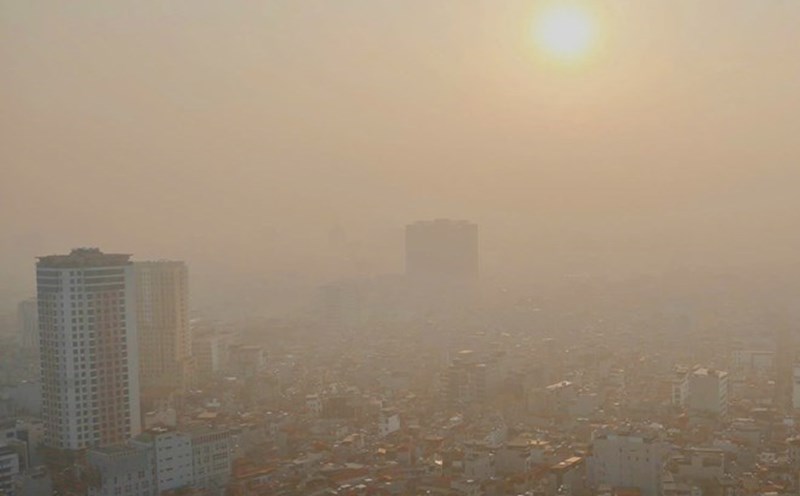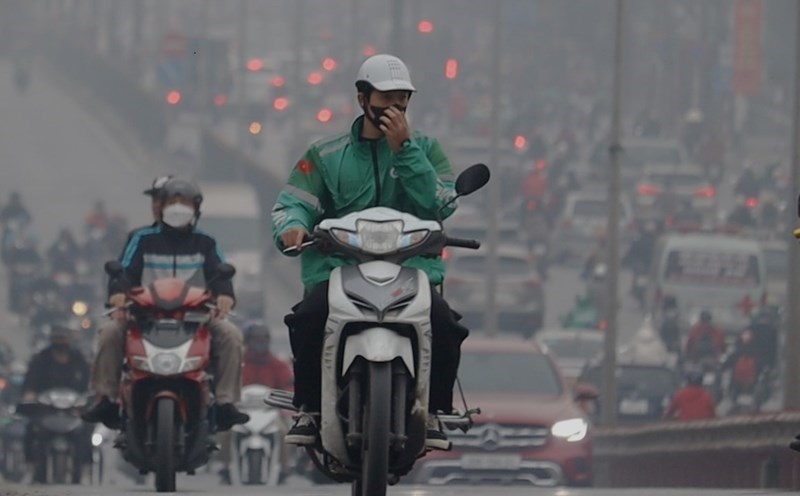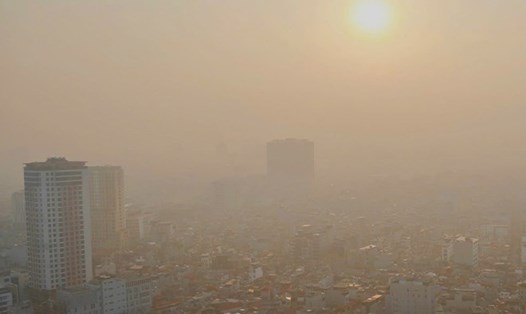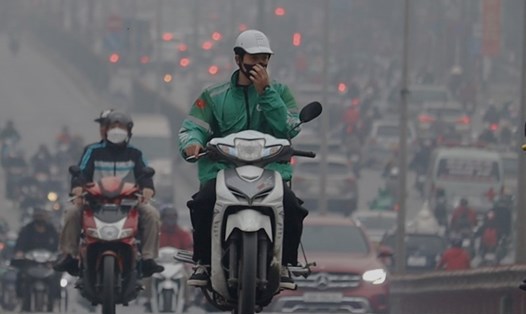To overcome this challenge, drastic action and close coordination among sectors and stakeholders are needed.
Air pollution - an increasingly serious threat
Air pollution is the leading cause of premature death globally, with more than 9 million deaths each year, according to data from Professor Yafang Cheng, Max Planck Institute for Chemistry (Germany).
In Vietnam, air pollution is particularly serious in large cities such as Hanoi and Ho Chi Minh City, where PM2.5 fine dust and toxic gases from traffic and industry are exceeding permissible levels.
According to Associate Professor Ho Quoc Bang, Ho Chi Minh City National University, in Hanoi, traffic accounts for 74% of PM2.5 fine dust emissions, while this figure in Ho Chi Minh City is 18%.
In addition, toxic gases such as NOx, CO and soot from motorbikes and cars also cause serious impacts not only on the environment but also on human health. Aerosol particles and soot not only damage the respiratory system but also aggravate climate change.
Professor Susan Solomon - Massachusetts Institute of Technology - warned that if no action is taken, air pollution could become many times more serious in the coming decades, especially when meteorological factors and thermal radiation change.
The consequences of this situation are not limited to human health but extend to the economic and environmental sectors. Industries, manufacturing and transportation are affected as poor air quality leads to reduced labor productivity.
Technology and policy - the key to solving air pollution
According to Professor Daniel Kammen, University of California, Berkeley, real-time monitoring technologies such as AI and satellites have helped advanced countries manage and control air quality effectively. These technologies not only provide accurate data but also help policymakers come up with solutions suitable for each region.
In addition, the transition to renewable energy is also a core element in the pollution reduction strategy. Clean energy sources such as solar power and wind power are being encouraged in many countries. However, Prof. Kammen emphasized that to successfully implement clean energy projects, large investments and specific support policies are needed, from reducing import taxes on equipment to financial incentives for businesses.
Experiences from Los Angeles, Beijing and San Francisco also show that enacting clean air laws, restricting old cars and encouraging the use of electric vehicles have brought positive results. In Beijing, efforts to reduce emissions from transport and industry have helped reduce PM2.5 concentrations by more than 25% in just a decade.
In Vietnam, companies like VinFast have pioneered the development of electric vehicles, but to achieve the expected efficiency, strong support from the Government is needed. Developing a synchronous charging station infrastructure, combined with tax incentives and subsidies for people will create incentives to promote the use of electric vehicles, thereby reducing emissions from traffic.
Cross-sectoral action for a green future
Solving air pollution cannot rely on just one industry or one country. Professor Susan Solomon emphasized that developing countries like Vietnam need technological and financial support from developed countries.
At home, there needs to be close coordination between government agencies, businesses and the community. The government needs to take a leading role with clear policies, such as applying stricter emission standards, eliminating substandard vehicles and promoting research and development of renewable energy.
Businesses need to boldly invest in clean technology and cooperate with international organizations to deploy sustainable solutions. Meanwhile, the community needs to raise awareness of environmental protection through changing habits, such as using green means of transport, limiting straw burning and participating in local environmental protection activities.
Air pollution knows no borders and excludes no one. Taking action today will not only save the environment but also protect the future of future generations. Cross-sectoral coordination, together with the determination of the whole society, is the key factor for Vietnam to completely solve this crisis.











